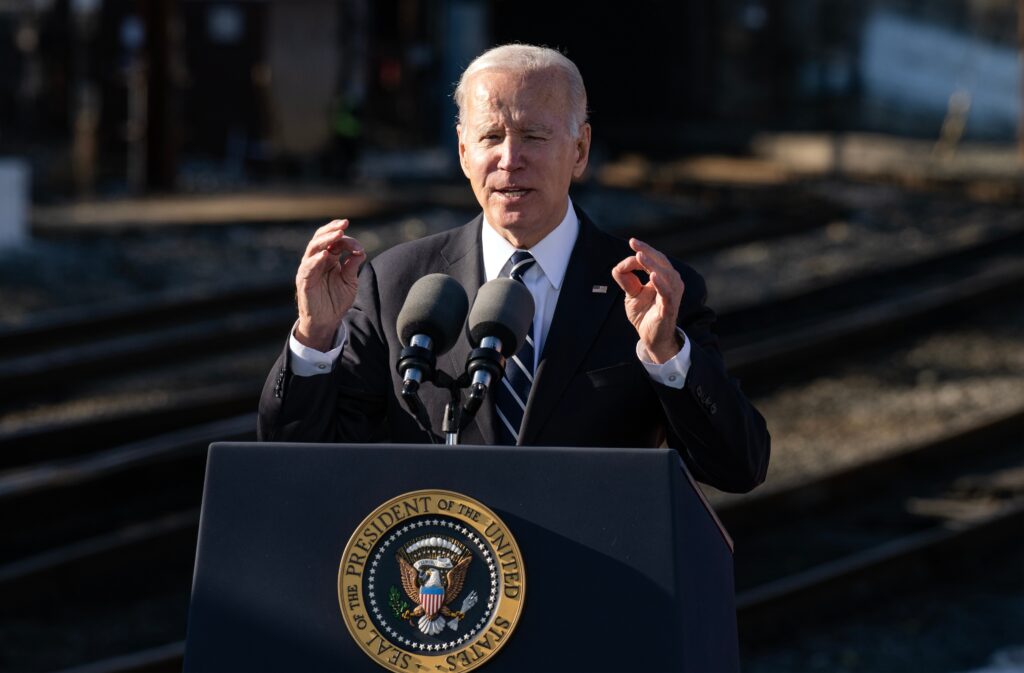The SurveyBeta survey on immigration has highlighted a critical perspective, revealing that 61% of respondents view the border crisis as a pressing issue demanding urgent attention. Among these respondents, 58% believe that a wall built to separate the U.S. from Mexico is viewed as a waste of tax dollars and isn’t a viable solution. These results underscore the gravity of the situation unfolding at the U.S.-Mexico border, which is far from a singular challenge—it is a complex crisis encompassing humanitarian, legal, security, and diplomatic dimensions. To effectively address this multifaceted issue, it is imperative to delve into key issues and explore potential solutions that uphold fundamental values of human rights and security.
Humanitarian Concerns
One of the primary issues stemming from the border crisis is the profound humanitarian impact on migrants, especially families and unaccompanied minors. Many migrants embark on perilous journeys, facing risks of exploitation, violence, and health hazards along the way. The surge in arrivals often overwhelms existing resources, leading to overcrowded border facilities and strained services. Providing adequate shelter, medical care, and support for vulnerable populations is critical to upholding human rights and ensuring humane treatment at the border.
Legal and Immigration Challenges
The processing of asylum claims and immigration procedures presents significant challenges, exacerbated by backlogs and delays in case processing that contribute to prolonged stays at border facilities and uncertainty for migrants. Streamlining immigration processes, increasing resources for immigration agencies, and improving coordination among federal agencies and immigration courts are essential steps to expedite asylum processing and alleviate pressure on the system.
Security and Enforcement
Ensuring border security while upholding human rights and due process is a delicate balance. The prevalence of smuggling, trafficking, and other illicit activities poses security challenges that require a comprehensive approach. Strengthening border security measures and enhancing cooperation with neighboring countries and international organizations are essential to combating criminal networks and improving overall border management.
The Cost of Border Walls
The SurveyBeta survey also sheds light on public sentiment regarding border walls, with 58% of respondents viewing a wall built to separate the U.S. from Mexico as a waste of tax dollars and an ineffective solution to addressing border challenges. This perspective resonates with concerns about the costliness and practicality of such endeavors. Notably, the construction of former President Trump’s border wall project incurred significant expenses, with billions of taxpayer dollars allocated towards its implementation. The cost of Trump’s wall was estimated to be several billion dollars, drawing scrutiny and debate over the allocation of resources towards border security initiatives. These findings underscore the need for cost-effective and evidence-based approaches to border management that address the complexities of immigration challenges comprehensively and efficiently.
Potential Solutions
Addressing America’s border crisis demands a multifaceted approach that integrates humanitarian assistance, legal reforms, international cooperation, and comprehensive immigration policies:
Enhanced Border Infrastructure and Resources: Investing in improved border infrastructure, including facilities and technology, can enhance border management and processing capabilities.
Streamlined Immigration Processes: Implementing measures to expedite asylum processing and immigration hearings can reduce backlogs and improve efficiency.
International Cooperation and Diplomacy: Foster partnerships with neighboring countries and international organizations to address root causes of migration and enhance border security through collaboration.
Humanitarian Assistance and Support: Expanding resources for humanitarian aid, including shelter, medical care, and social services, is crucial to ensuring the well-being of migrants and refugees.
Comprehensive Immigration Reform: Pursuing bipartisan efforts to enact comprehensive immigration reform can address legal pathways for migration, border security, and the status of undocumented immigrants.
Public Engagement and Education: Fostering public understanding and empathy towards migrants and refugees through education and awareness campaigns can promote community involvement and support for initiatives that assist migrants.
Conclusion
In conclusion, addressing America’s border crisis requires a holistic and collaborative approach that prioritizes humanitarian principles, legal integrity, and security considerations. By implementing comprehensive solutions that address the root causes of migration, enhance border management capabilities, and streamline immigration processes, policymakers can work towards sustainable solutions that uphold human dignity and respect for all individuals involved in this complex issue. This approach aims to create a more just and equitable immigration system that aligns with the values of compassion, fairness, and solidarity. Taking into account public sentiments regarding ineffective solutions like border walls is crucial in shaping effective and inclusive policy responses.
Have opinions on the topic of immigration changed over time? Check out our Historical Section to see what people thought about immigration during the 1980s.


